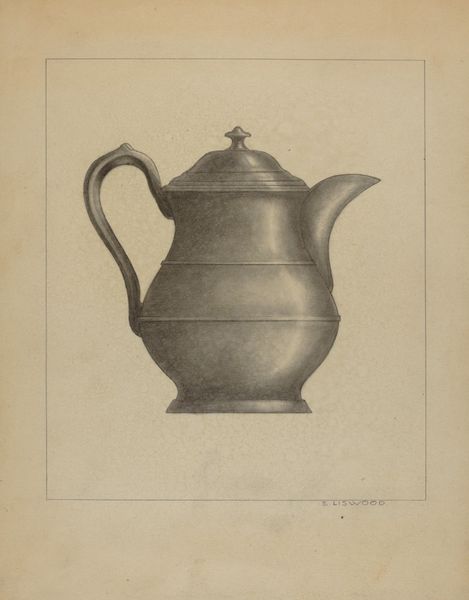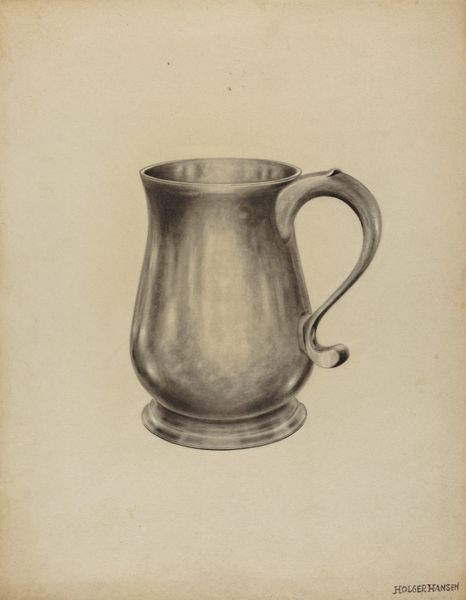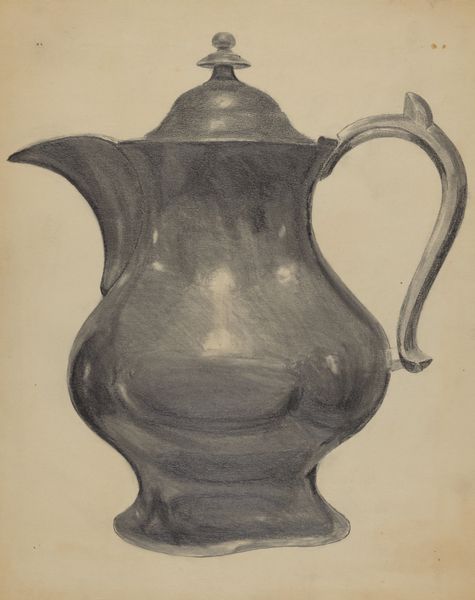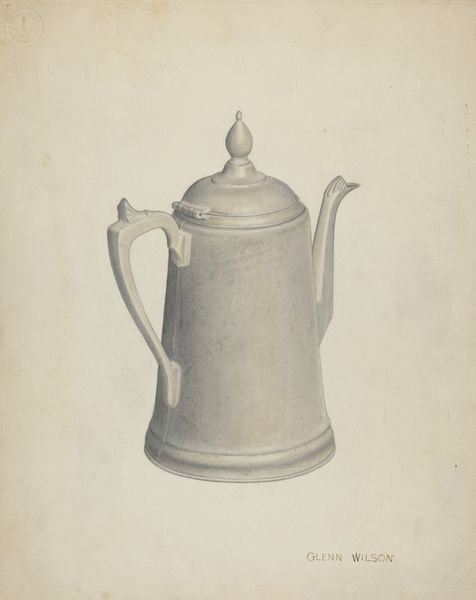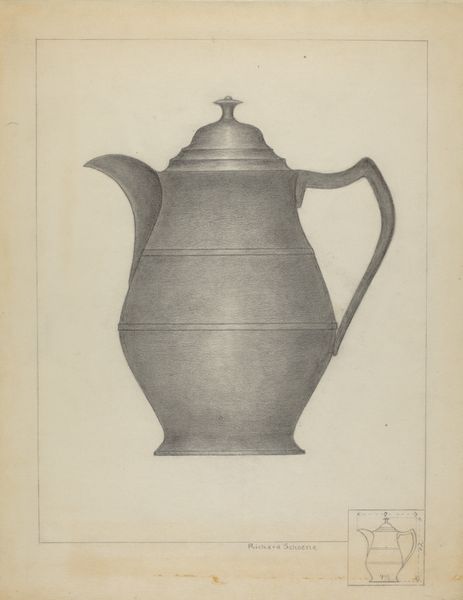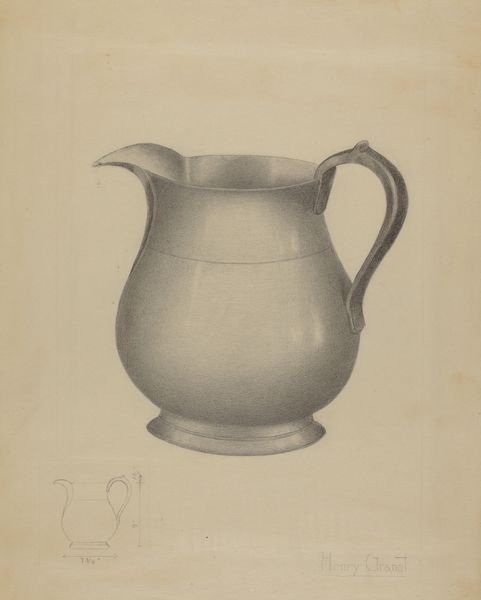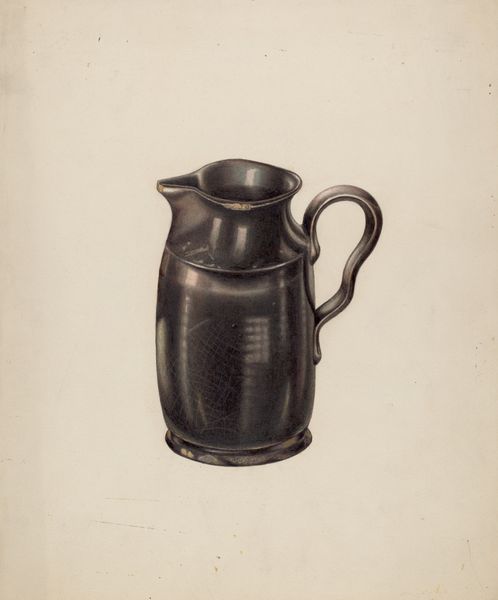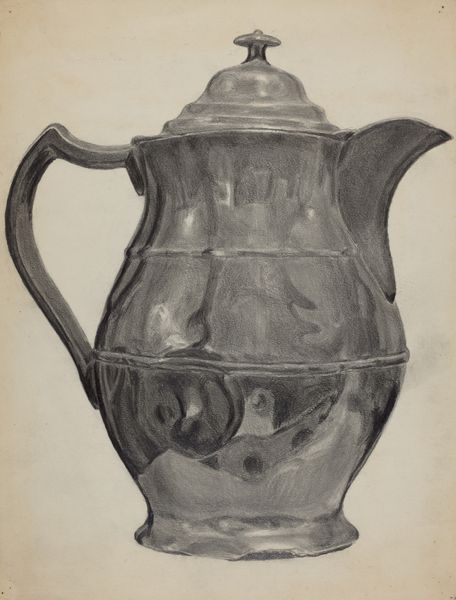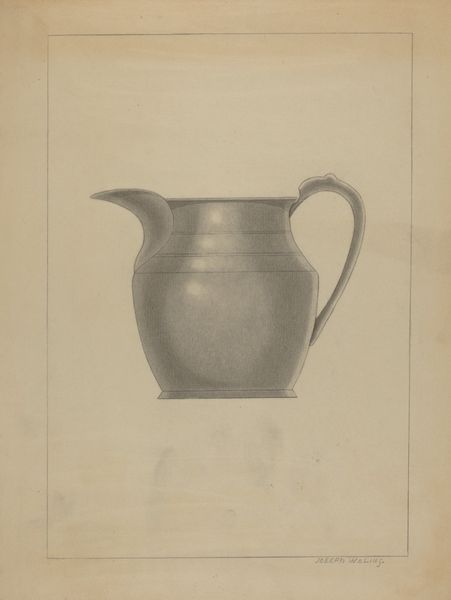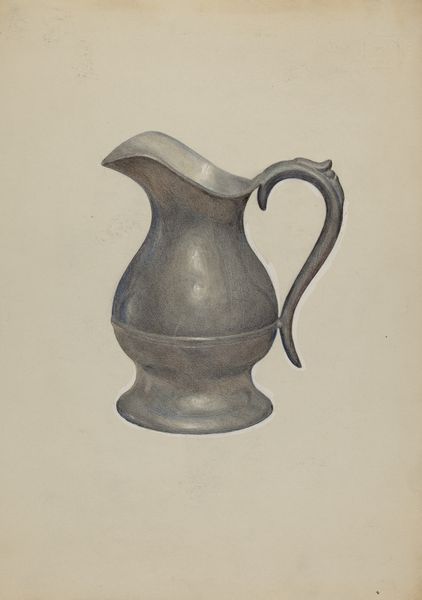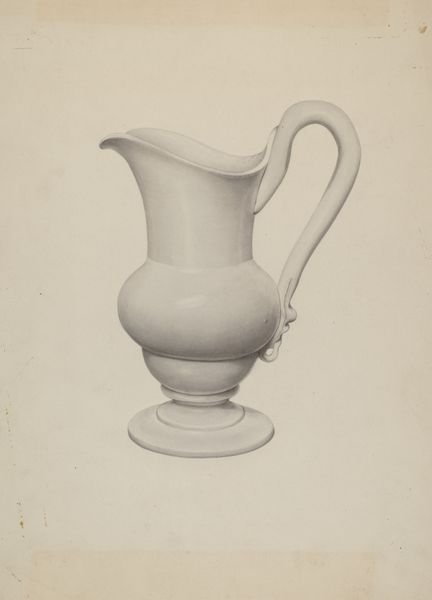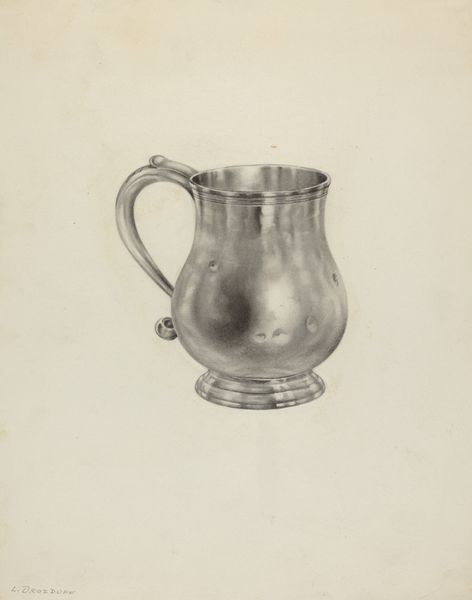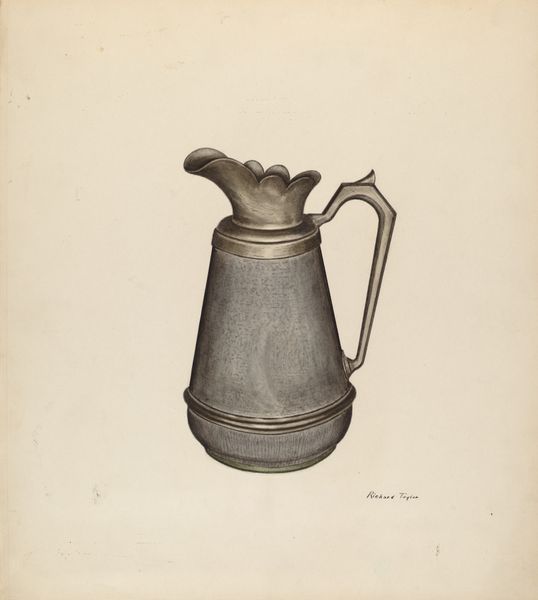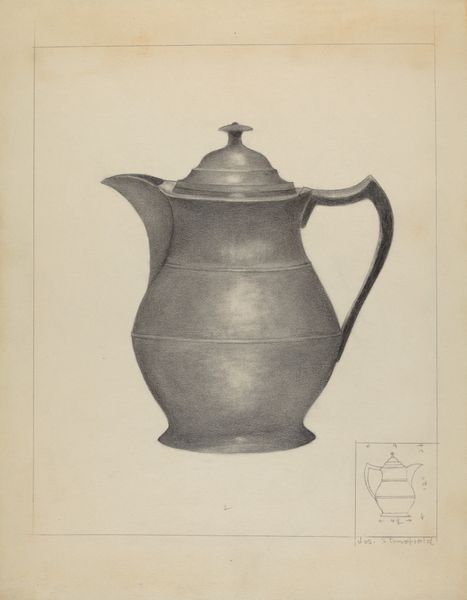
drawing, pencil
#
drawing
#
pencil drawing
#
pencil
#
realism
Dimensions: overall: 40.4 x 30.3 cm (15 7/8 x 11 15/16 in.) Original IAD Object: 6 3/8" in diameter; 10 1/2" high
Copyright: National Gallery of Art: CC0 1.0
Editor: We're looking at "Pa. German Coffee Pot" by Filippo Porreca, created around 1938 using pencil. It's surprisingly detailed. What first strikes me is how solid it feels, almost like a study in pure form and light. What do you see in this piece? Curator: Indeed. My immediate impression is focused less on the represented object, and more on the language of its construction. Note how the artist modulates tone to articulate the form. The pencil hatching isn't merely representational; rather it operates as a system of marks that generates volume and texture. Observe the subtle shifts in value—a tight range, but one that effectively models the reflective properties of the pot's surface. It moves beyond simple illustration, doesn’t it? Editor: Absolutely. The way the light reflects off the curves gives it a near photographic realism. Is it meant to be purely observational? Curator: Perhaps. But let us consider the relationship between the object and its depiction. The success lies not just in imitation, but in the artist's command of line, tone, and composition to produce the visual impression of a metal object. Even the negative space becomes active through this process. Think about the philosophical implications. What constitutes "real" when viewing representational art? Is the object any less "real" just because it's represented using pencil strokes? Editor: That’s fascinating! So, it’s less about what is depicted and more about how it is depicted. The artist is almost drawing our attention to the drawing process itself. Curator: Precisely! A coffee pot then becomes simply the catalyst for a formal investigation. Editor: This has really changed how I see still life drawings; I never considered the artist's hand so actively shaping our perception. Curator: It’s a reminder that even in seemingly simple subjects, profound visual dialogues can emerge.
Comments
No comments
Be the first to comment and join the conversation on the ultimate creative platform.
